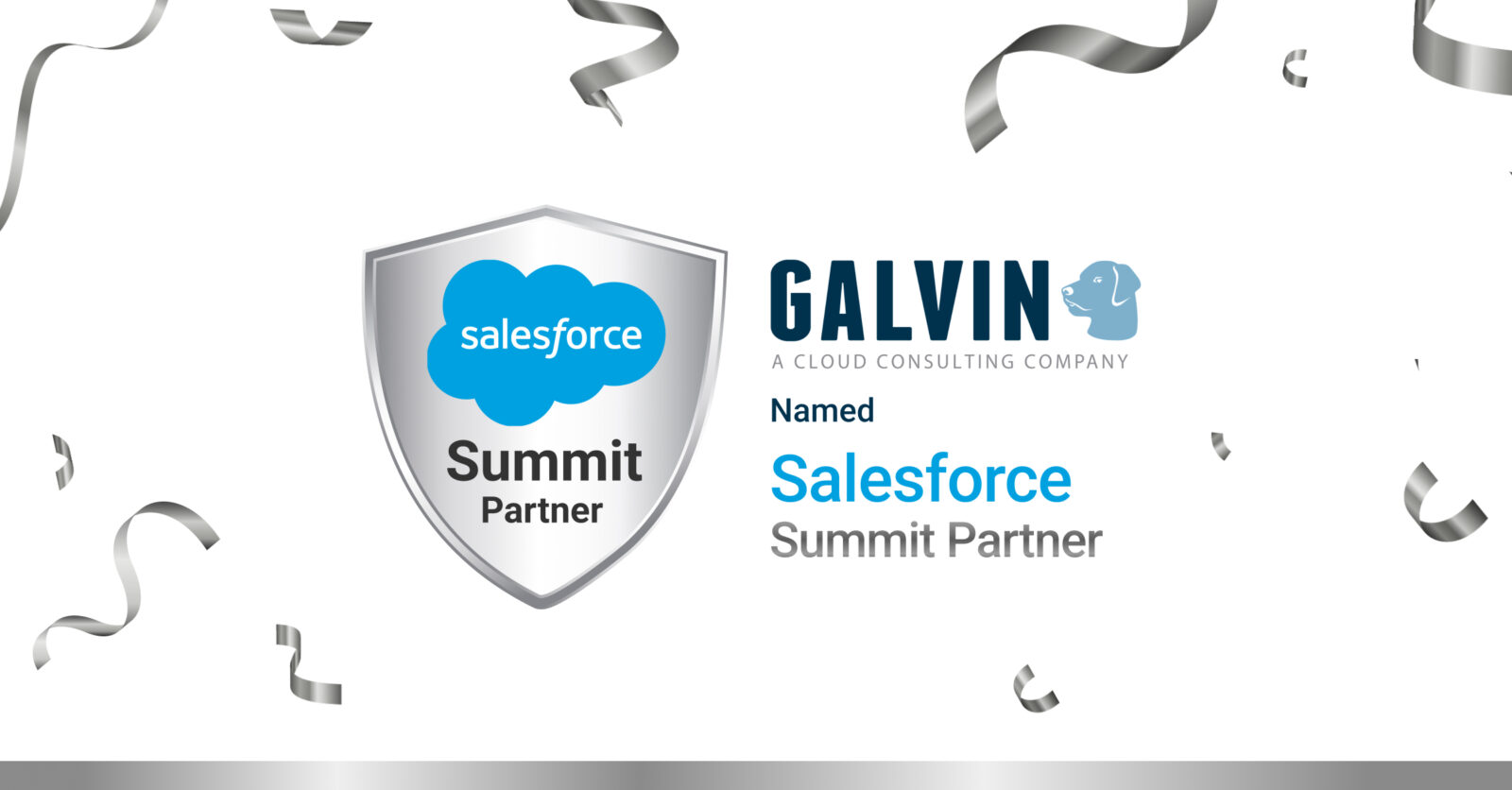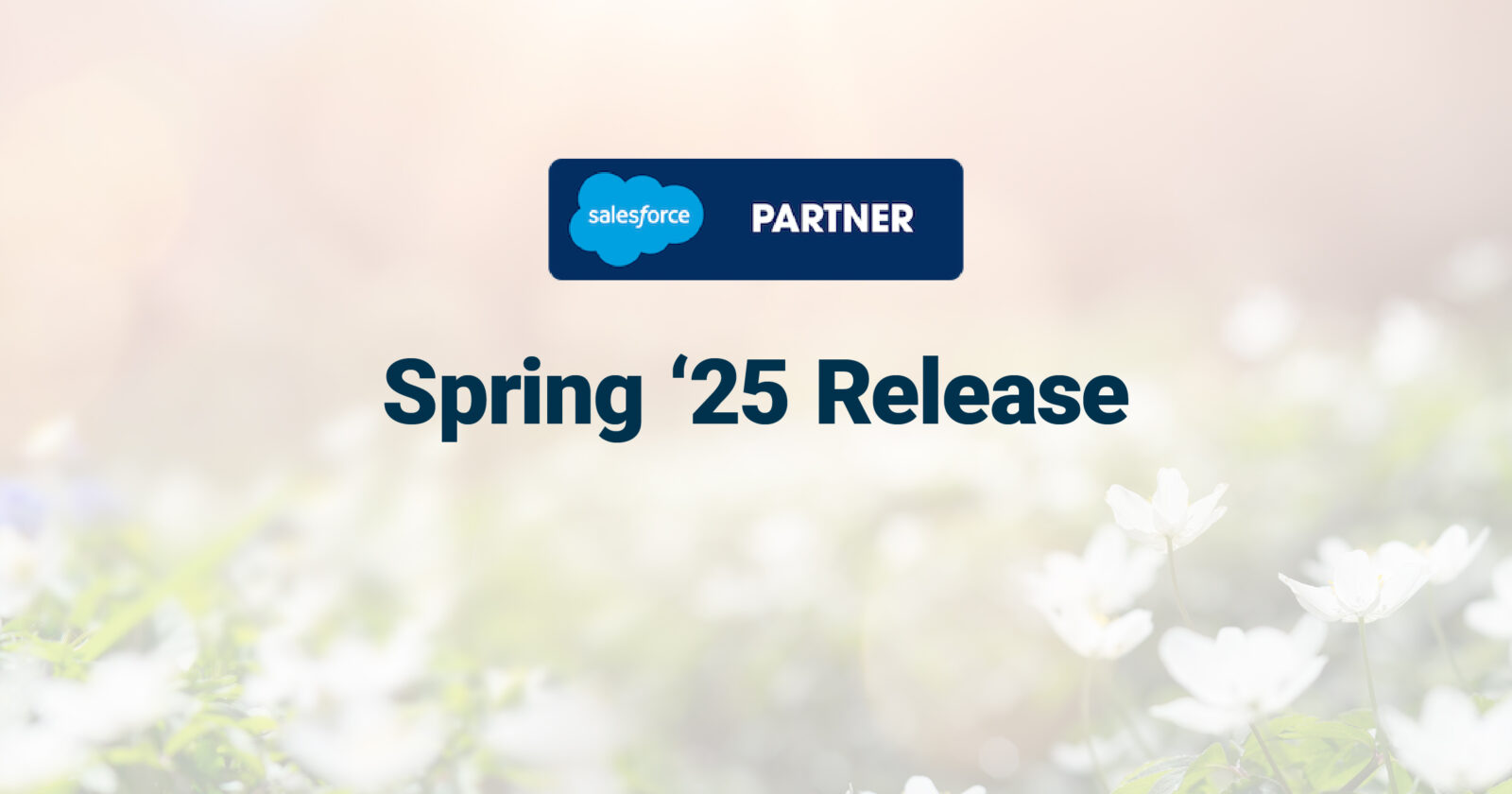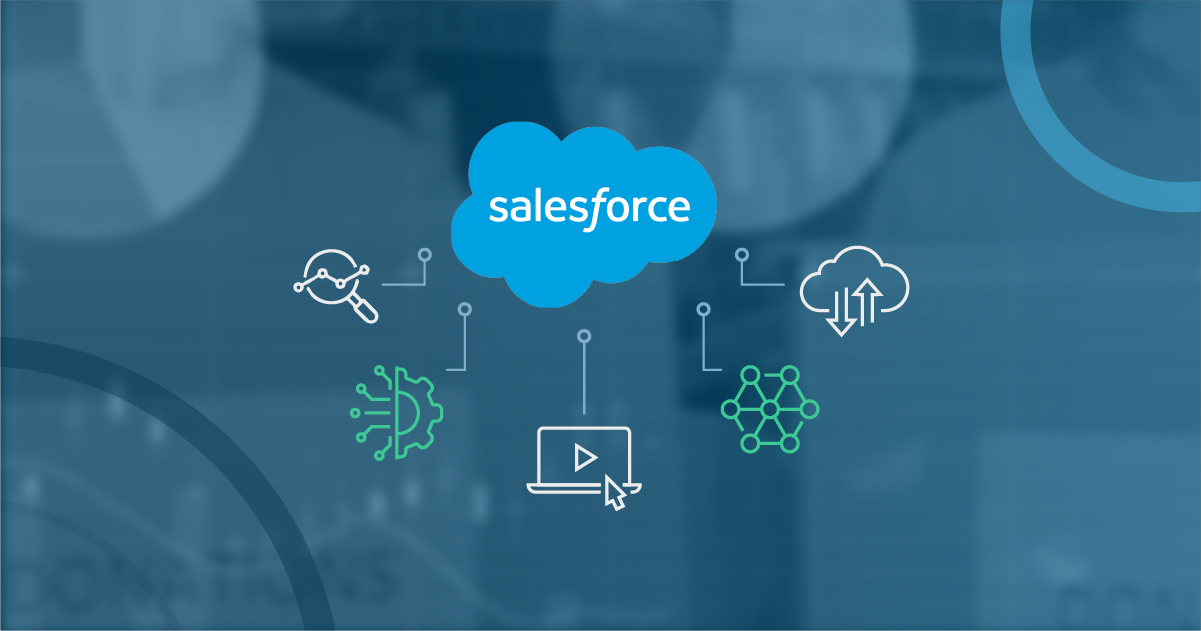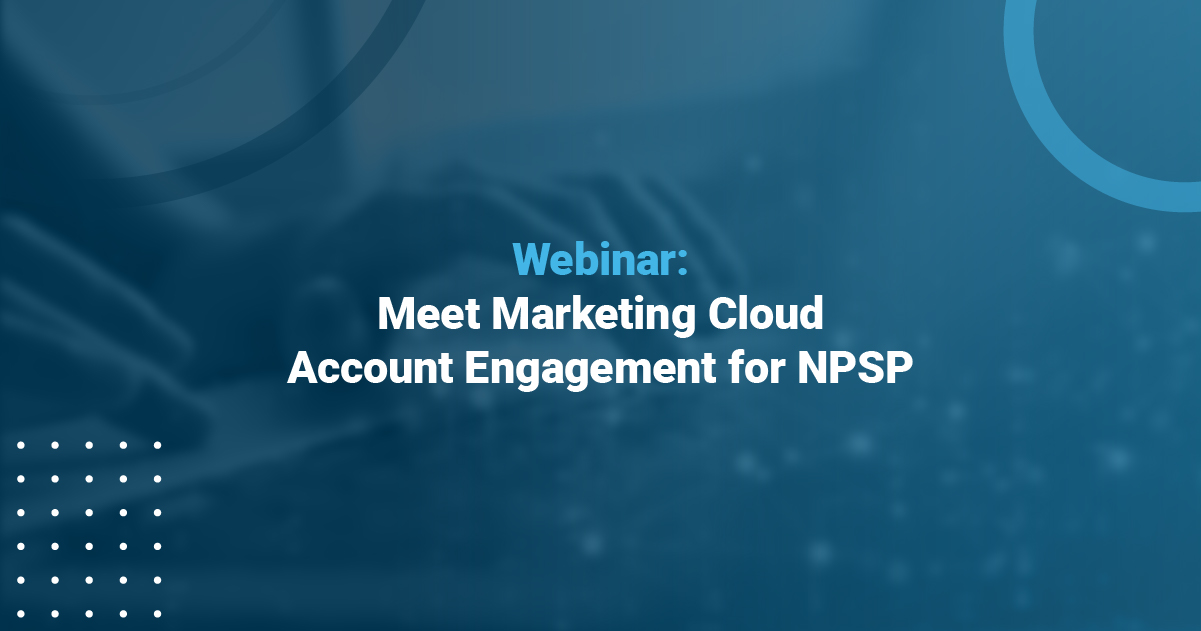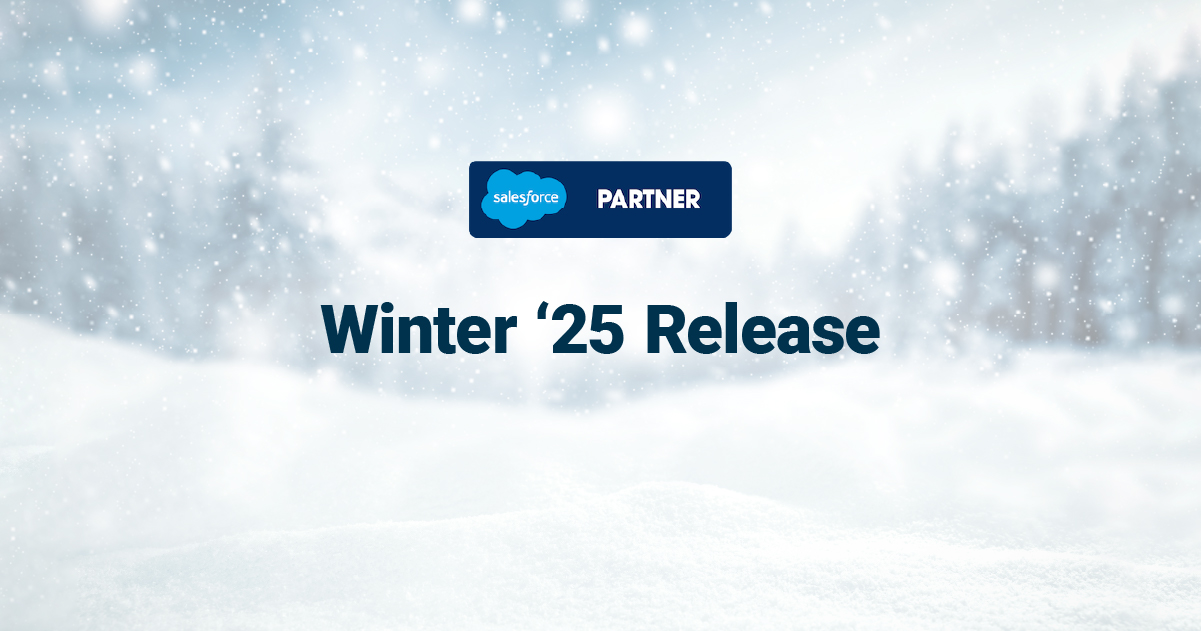Switching from HubSpot to Pardot: Everything You Need to Know
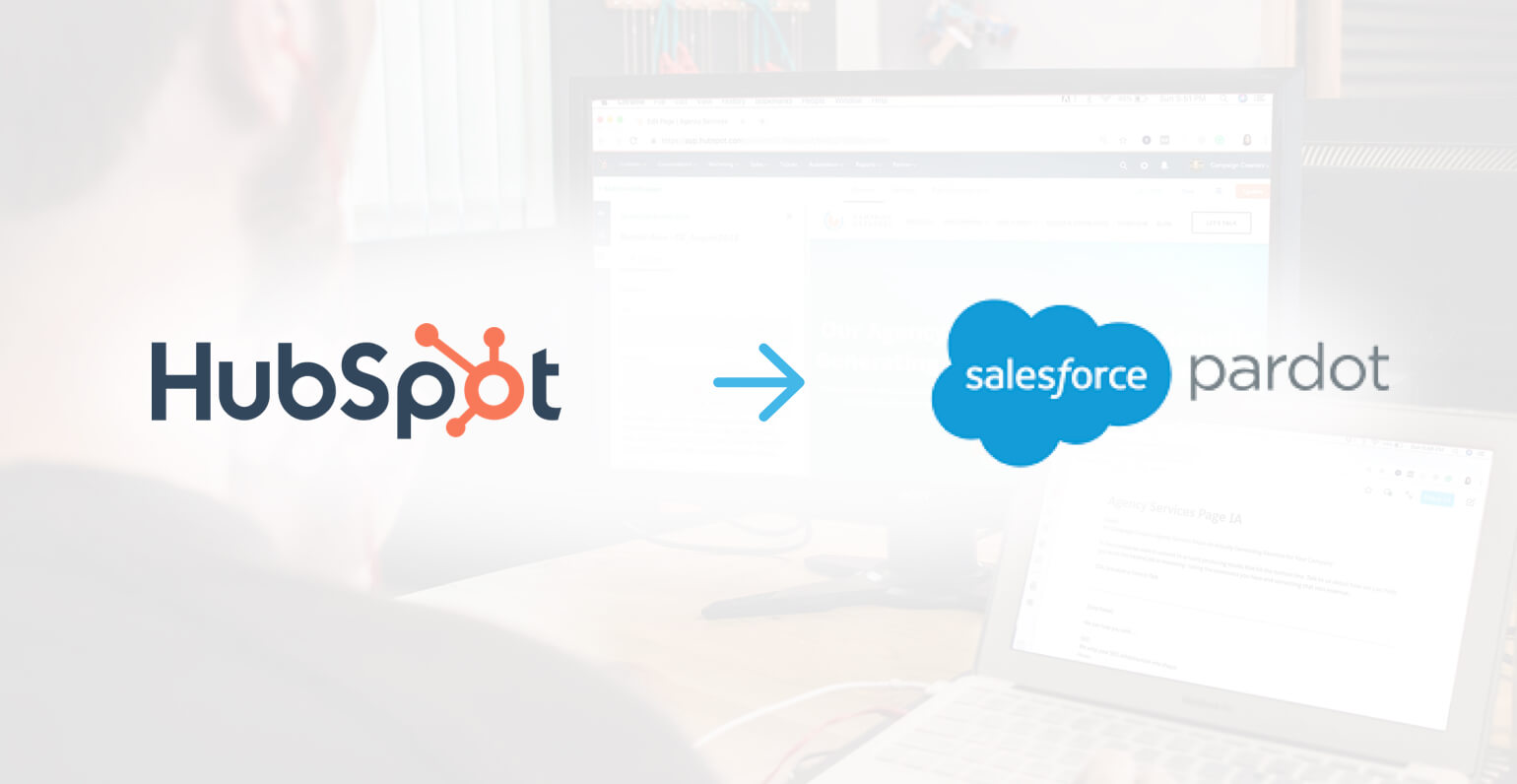
When it comes to HubSpot Marketing Hub and Pardot, which is better? Search that question online and you’ll find lots of opinions. That’s because the platforms truly are comparable and competitive. Online reviews call it a “neck-and-neck race.” So, which to choose? Switching from HubSpot to Pardot all comes down to your business needs.
Think of it like buying a car. If all you want is something for driving to and from work, nearly any car will do. But maybe you have a family, so space and safety are factors. Climate change prompts you to want an electric vehicle or a high mile-per-gallon range. As a status symbol, you want something sleek and stylish. A long commute makes interior comfort most important.
As it turns out, not just any car will do. Form and function are key.
When it comes to HubSpot versus Pardot, both platforms can go the distance. But Pardot has one particularly important connection where HubSpot Marketing Hub simply does not match up—Salesforce. In the battle of who’s best, the CRM makes all the difference.
In this blog, we’ll discuss the key differences between HubSpot and Pardot, why your company might be primed for Salesforce’s Pardot, and how to smoothly make the switch.
HubSpot Vs. Pardot: Understanding Key Differences
In the crowded marketing automation space, HubSpot and Pardot are both standout platforms. Each excels differently while working toward the same goal—streamlining marketing to generate more high-quality sales opportunities with better efficiency. Think of HubSpot as a sophisticated marketing system offering a CRM. In contrast, Pardot is a marketing system driven by the world’s most sophisticated CRM. That distinction is important.
Here’s a quick guide for how the two marketing platforms stack up:
Hubspot |
Pardot |
|
|---|---|---|
Sales Reporting & Forecasting |
Offers advanced sales reporting and forecasting through an upgraded plan. Includes many standard reports with customizable options. | Advanced sales reporting and forecasting available in baseline plans with full customization capabilities. Any piece of data can generate a report or dashboard through the Salesforce integration. |
Marketing Features |
Key features include:
Features come in low-cost product bundles. |
Key features include:
Features purchased as individual tools making mix-and-match possible. |
Customization |
Supports customizable workflows and automation but does not provide access to code. | Highly customizable supporting both code and no-codes options. |
Ease of Use |
Sometimes considered easier to use out of the box. HubSpot provides solid onboarding and step-by-step help to get started. Mastering all HubSpot features often takes time and training. | Requires a more structured setup and integration management. May involve a steep learning curve that requires outside training to fully utilize all system features. |
Sales Support |
HubSpot’s specialty is operating as a complete inbound marketing suite. The platform focuses on top-of-funnel activities that create awareness. The biggest benefits go to marketers wanting a collection of tools within one platform. | Pardot focuses on sales enablement providing tools for moving leads between marketing and sales, internal communication tools for keeping both teams in sync, and triggering campaigns based on prospect data. Its specialty is mid-funnel activities. |
Integrations |
Integrates with many third-party tools to extend HubSpot’s functionality. The App Partner Program includes hundreds of potential integrations to make the platform widely accessible. Out-of-the-box connections require few technical resources to get going. | Pardot benefits from Salesforce’s AppExchange with thousands of opportunities for third-party integrations to enhance the system including flexibility for where they support the customer journey. Many options offer free trials. AppExchange integrations may require technical resources for setup. |
Ecosystem |
HubSpot CRM is considered a light version of Salesforce without the same amount of data or integration functionality to drive the Marketing Hub. | Pardot integrates seamlessly with Salesforce, considered the world’s #1 CRM. The connection offers the most amount of data and functionality to drive sales. |
Based on this list, do you have a clear favorite? Maybe not, so let’s talk about the biggest differentiator between HubSpot and Pardot—Salesforce.
Why You Should Be Switching from HubSpot to Pardot
When it comes to marketing functionality, HubSpot and Pardot are largely apples to apples. As for the marketing functionality that their associated CRMs help create, now we’re talking apples and oranges.
Pardot’s integration with Salesforce means that any piece of data captured by the system can be used to drive marketing and sales activities. Pardot supports dynamic content, so the system customizes messaging based on unique customer data captured inside Salesforce. With HubSpot, this feature is limited to certain fields because the system simply does not leverage data the same way as Salesforce.
Pardot also has an edge when it comes to automation. Let’s say your company wants to launch a campaign after a prospect fills out a form. Pardot supports an advanced email builder that creates sophisticated emails without needing to know HTML. The platform allows marketers to build out complex automated campaigns triggered by any piece of unique data inside Salesforce. That means the opportunities for automation around tailored content are nearly endless. HubSpot’s CRM cannot currently drive the same level of data-based marketing activity. The Marketing Hub’s tools are top notch, but the smarts driving them are lacking compared to Pardot and Salesforce.
With a fully customizable system, Salesforce also makes accessing data easy for Pardot users. Unique lists and filters making finding and using data simple. HubSpot CRM has a limited ability to create specific data views, which complicates accessing system information. If you can’t easily see the data, using it to drive marketing activities is not realistic.
Finally, the seamless connection between Salesforce and Pardot creates one vision between sales and marketing. Salesforce provides comprehensive dashboards and reports giving full visibility to the sales pipeline from lead to closed deals. That means the connection between Pardot marketing activities and sales revenue is clear. While HubSpot also provides reports and dashboards, the correlation between marketing activities and sales results is less apparent. Switching from HubSpot to Pardot becomes an easier choice when you consider the power and capabilities of Salesforce.
Preparing for the Move to Pardot
If you’re ready to make the move to Pardot and Salesforce, here are a few things you’ll need to do for a smooth transition.
- Find a partner like Galvin Technologies who can integrate data, systems, and workflows seamlessly. Once configured, Galvin provides the training so companies immediately leverage the power of Pardot and Salesforce together.
- Take an inventory of all forms and email templates needed in Pardot.
- Catalog key metrics. HubSpot comes with out-of-the-box KPIs, easily recreated and expanded in Salesforce.
- Examine existing automations and think of new ones. What could be automated that currently isn’t?
- Identify any custom fields used in forms that will need a home in Salesforce.
- Gather campaign history and previous engagements. This information can be carried over and built upon.
Ready to Start Switching from HubSpot to Pardot?
If your company wants marketing driven by data, Pardot is a game-changer. Galvin Technologies is a leading integration partner with Pardot experts ready to level-up your marketing. Discover how we leverage Pardot’s full potential to meet your business goals.
WANT TO TALK WITH OUR CONSULTING TEAM?
We’d love to work with you on your Salesforce needs. Our team of certified Consultants can work closely with your team to close more deals. Call us at 317-297-2910 or complete the form below.

